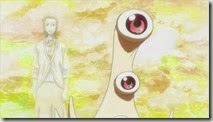 |
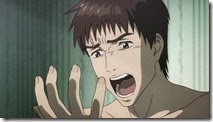 |
 |
 |
 |
 |
Things that make you go “Hmm…” for $1000 please, Alex.
Kiseijuu is a fascinating series in more ways than I can count – in pretty much every way, in fact. It’s wholly deserving of the outstanding ratings it’s received at places like Anime Planet and MAL (where it’s in all-time Top 25 territory, perhaps even a bit higher than I’d go myself). Very few series this intellectually ambitious come along, never mind ones that clearly respect the audience as much as this one does (Madhouse happens to be working on another one right now). Sometimes great anime come out of nowhere, but it’s more common for them to be the shows we expect greatness from – in a medium dominated by adaptations and dependent on individual talent, pedigree is everything.
If one would ask any question about this adaptation, it might be this: what in the world took so long? Parasyte ended 20 years ago, and now it’s received not just an anime but a highly successful 2-part live-action film. The manga has seen a second boom in sales, two decades after it left best-seller lists. Kiseijuu may not be the sort of series that sells massive amounts of anime Blu-rays or DVDs, but it’s not as though it was re-discovered last year or something – it’s a cultural institution in Japan, and its influence on what came after (for me, most importantly Togashi Yoshihiro) could hardly be more obvious. Better late than never? Certainly – but it’s still a puzzler.
With that said, it seems very clear in watching this adaptation that Parasyte is a product of a different time. It’s far more direct in its storytelling than most modern anime or even manga – it certainly asks difficult questions, but it comes right out and asks them. It doesn’t rely on snark and subterfuge. Madhouse and director Shimizu Kenichi faced some interesting choices in how much to update Iwaaki Hitoshi’s manga – always a crucial factor when adapting older series – and I think Shimizu chose to largely leave it intact. There are no obvious anachronisms here – dial phones or Yugos – and the character designs have been updated a bit, but in terms of narrative style, he didn’t modernize Kiseijuu at all. I think that’s generally the right call, and it certainly was here.
As I more or less expected, last week’s episode provided the effective conclusion to Kiseijuu’s larger story, leaving the finale to be mostly (though certainly not entirely) reflection. That too is generally the right call – it’s nice to see the characters step back and consider what’s happened, and to get the chance as an audience to do the same. And the closing moments of this series have been all about pondering difficult questions without easy answers. If one were to simplify Parasyte by describing it as a reflection on what it means to be human (and I think one could do a whole lot worse) then last week’s episode and this certainly confronted the matter head-on.
If anyone was expecting definitive answers here, they certainly didn’t get many of them (though I’d argue they were barking up the wrong tree if they were). We’re never told the exact truth of what caused the parasites to come into existence in the first place. We don’t know why some people could sense them and others couldn’t. We also don’t hear a peep about Tamura Ryouko’s baby, which was arguably the only disappointment of the finale for me. I would have expected Shinichi to at least express a concern over the matter, though it’s hard to imagine he’d have ben able to do anything about it. Normal human or not, I’d certainly fear for that child’s future.
I think one of the messages of this series is that not all questions have definitive answers, and that it’s the asking that’s important – because it’s the pondering of the question that’s one of the defining traits of our humanity. The best scene of the finale for me was Migi’s dream farewell to Shinichi, which is fully on-board with this theme. Migi is looking for answers he hasn’t been able to find in “Shinichi’s” world, and his time with Goutou has opened his consciousness up to new ways of being that he’d never considered before. What Migi wants is to ask the questions, to try and give some meaning to his existence. He also seems to want to give Shinichi back some semblance of normalcy that he’ll never have as long as the two of their consciousnesses are cohabiting in Shinichi’s body.
I think, in the end, Migi is selling Shinichi a little short here, and acting a bit selfishly. Of course Shinichi isn’t going to forget him, not even the dream of him, and there’s no way Shinichi could ever (or indeed, would ever want to) go back to the person he was before Migi came into his life. There’s a bit of a Buddhist theme here just as there is in “Chimera Ant”, though it’s not as far-reaching or literal – Shinichi is seeking enlightenment, and one of the barriers to enlightenment is an attachment to the physical body. Given a chance at enlightenment he chooses to leave his physical body behind – a highly evolved decision in Buddhist terms – though the act of doing so brings the pain of loneliness to those left behind in their physical forms.
After Migi’s departure – perhaps forever, perhaps not – Shinichi does indeed attempt to go back to a normal life. That means trying to catch up on things like his relationship with Satomi – and on his college exams, presumably punted because of more pressing affairs. And that means a study trip to Inokashira Park (funny I never noticed this series was set in Kichijouji, but it’s all over this episode). And while Shinichi is clearly happy to be with Satomi, he too is pondering – on what’s become of the parasites (seemingly, blending in with society and keeping a low profile), and on what everything that’s happened means. Fundamentally, he concludes, humanity is selfish – even their acts of kindness and concern towards the planet and other species are selfishly motivated. We can never understand other humans, much less other species – so perhaps, in the end, it’s enough to understand and accept ourselves, even the selfish part.
As expected, though, fate has one more wild card to play when things get too reflective, and that’s Uragami. He too has been pondering, and in point of fact his line of thinking isn’t all that different from Shinichi’s. Uragami figures humanity is selfish too, but what strikes him is how unnatural it is that other humans suppress their desire to destroy and consume each other like wild beasts. He even figures that’s what screwed up the planet – by suppressing their nature humans have caused their numbers to explode, putting the planet at risk. And I think Shinichi is an existence that fundamentally threatens him – as a half-breed and one that refrains from unnecessary killing at that, Shinichi represents everything that’s unnatural and wrong in the world.
It figures Uragami would use Satomi to get at Shinichi – attacking the weak spot in classic predatory fashion. What does Uragami want out of this encounter? He says “an answer, that he’d never get from a human – what do you think of me?” I think he wants to force Shinichi to see the true darkness of humanity, to make it impossible for him to live a life Urgami sees as one of denial. And to have fun, as Uragami seems resigned to the fact that he’s going to be caught and executed sooner or later. There’s yet more collateral damage – two bystanders on the roof where Uragami drags Satomi at knifepoint to force his final confrontation with Shinichi. I don’t think this is loose writing by Iwaaki here – I think he does this very intentionally to highlight the selfishness of human perspective. How the lives of those we know count for more than those of strangers – both as it applies to Shinichi, and to us.
Just what does happen on that rooftop? When Urgami outs Shinichi, I don’t think Satomi is really surprised – I think she knew all along. And I think this is the critical moment of freedom, the one that allows her to verbally defy Uragami and Shinichi to force the moment, taking a huge risk by attacking Uragami head-on. The moment where it seems that Satomi has fallen from the building is terrifyingly real and convincing, and I’m not sure how to interpret what was real and what was only in Shinchi’s mind. It does seem that the truth is that Shinichi reaches Satomi in time, and that it was with Migi’s help.
“An organism with time to spare in its heart. How wonderful is that?” It’s a fascinating note to end on, unexpected yet surprisingly on-point. What makes us human, if not our preoccupation with matters not directly related to life, procreation and death? It leads us into terrible mischief, but also holds the way to enlightenment. This is the path Migi has chosen, perhaps in doing so becoming more human than ever. But he’s also just told Shinichi that he’s still very much with him even if he’s silent – watching Shinichi live his life, a part of him in far more than just the biological sense. This is one of those “tiny points of understanding” Shinichi refers to, the connections that shape who we are as individuals, and as a species.
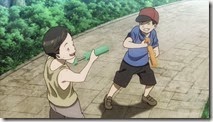 |
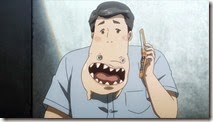 |
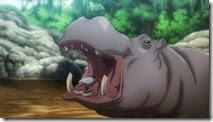 |
 |
 |
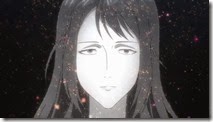 |
 |
 |
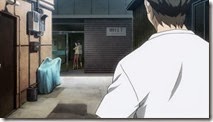 |
 |
 |
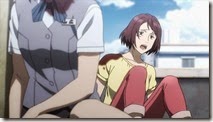 |
 |
 |
 |
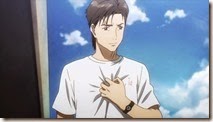 |
 |
 |
 |
 |
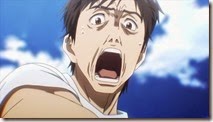 |
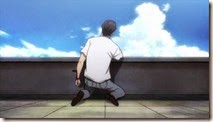 |
 |
 |
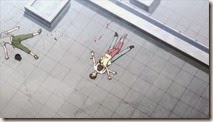 |
 |
 |


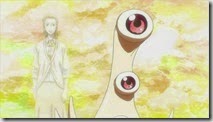
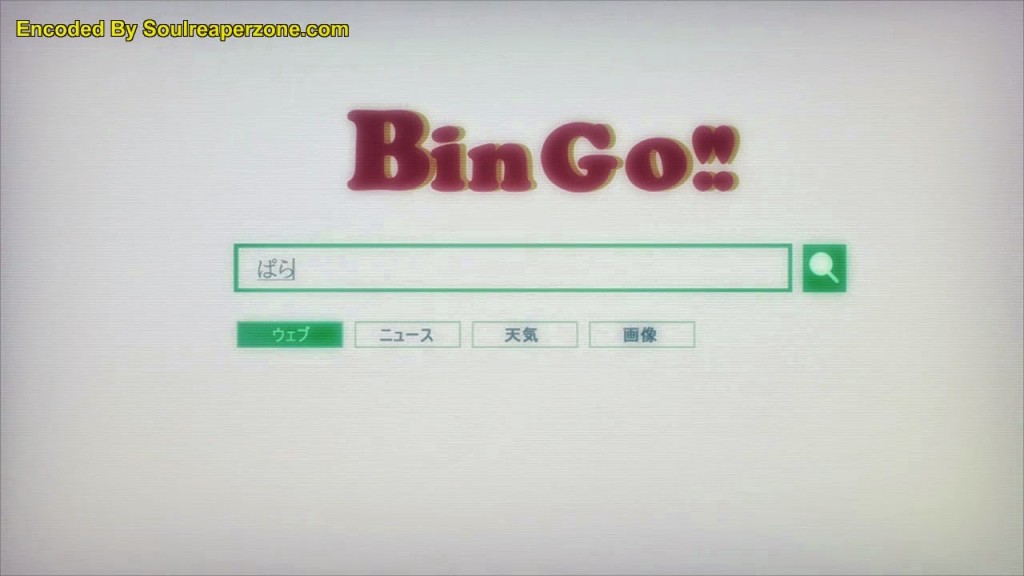
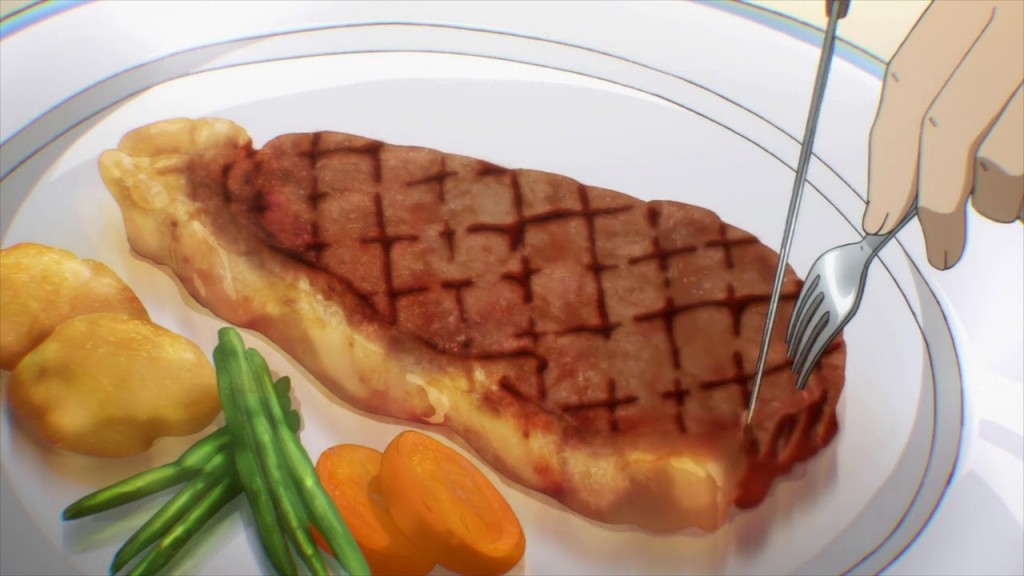
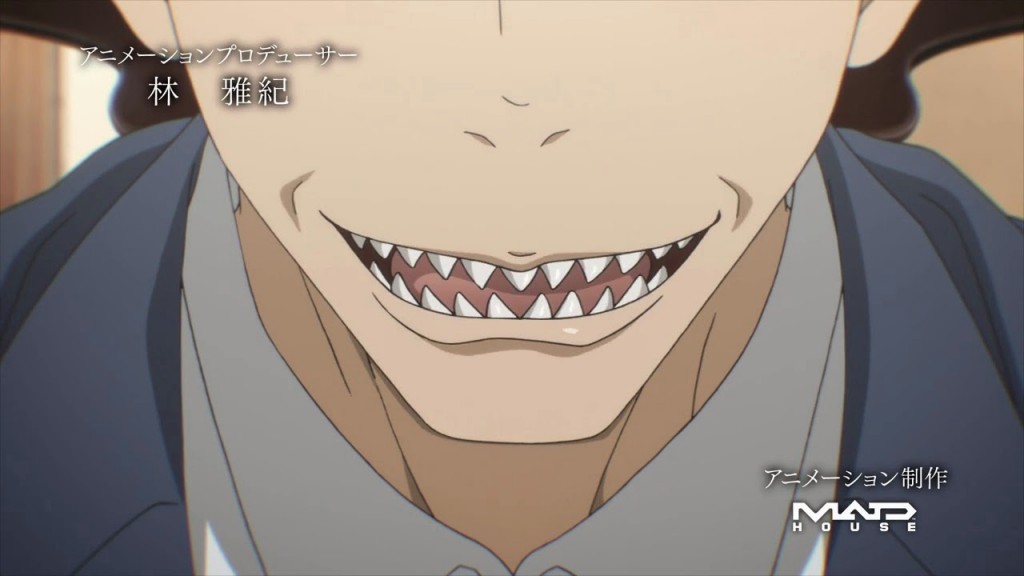
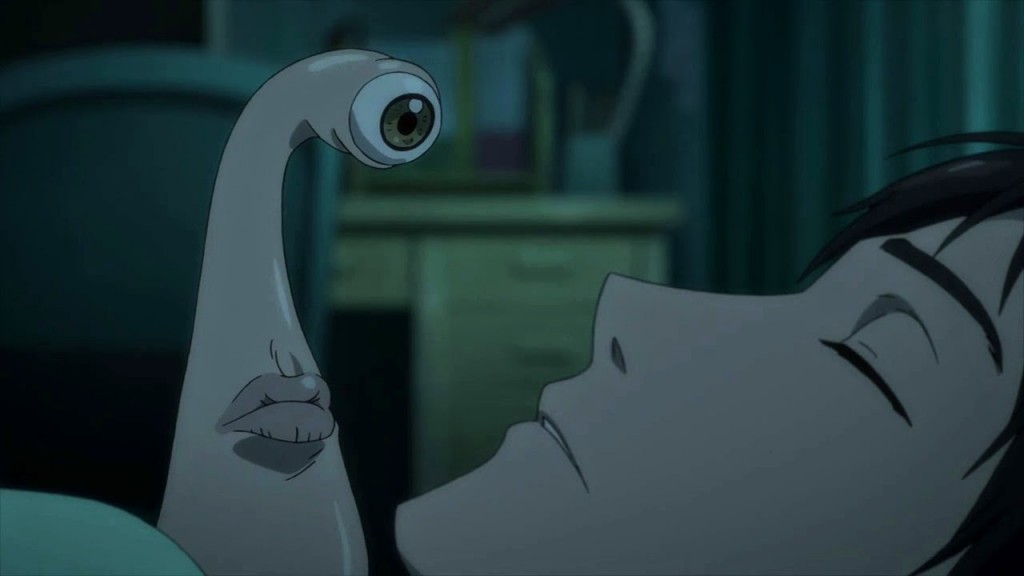
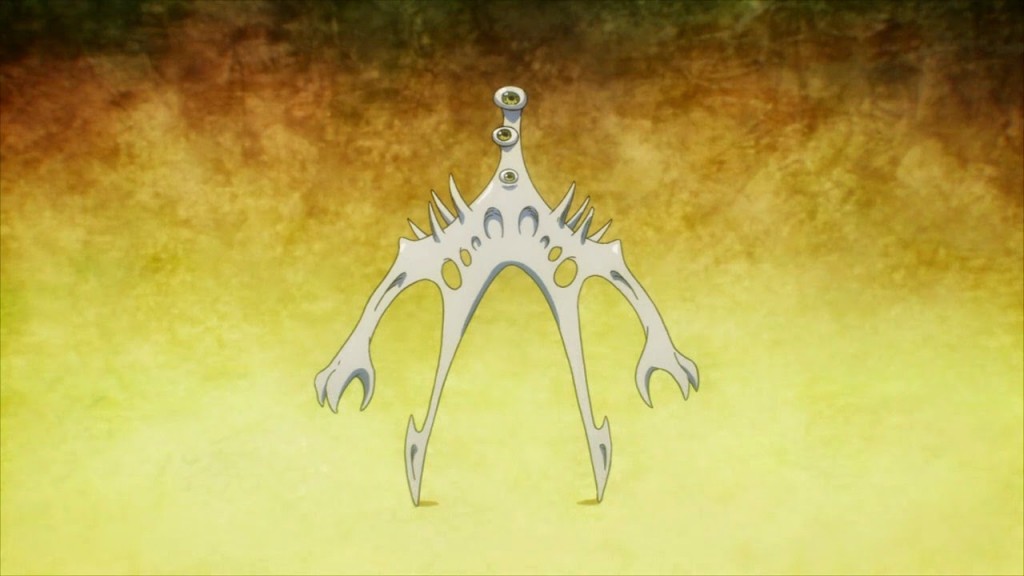
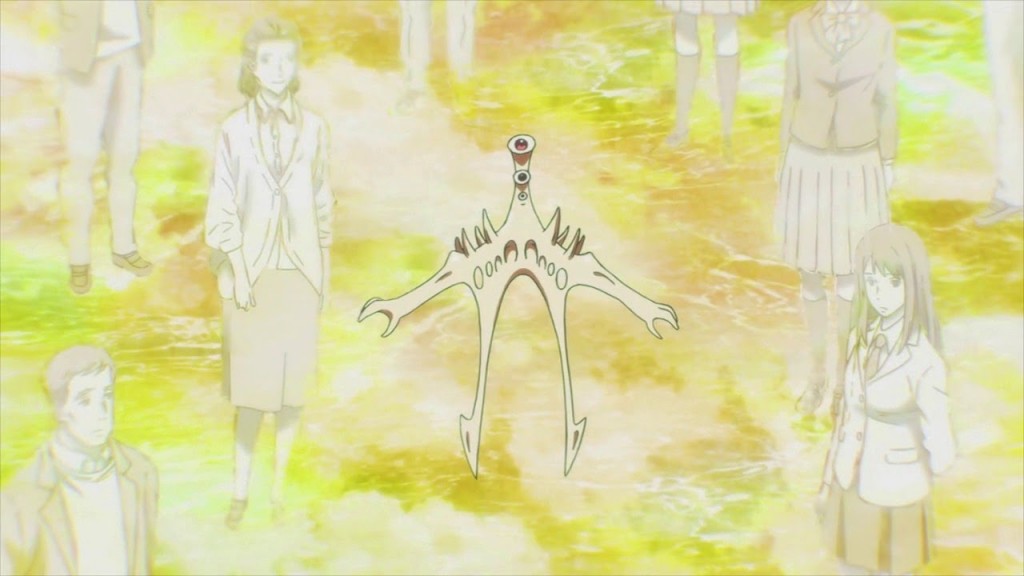
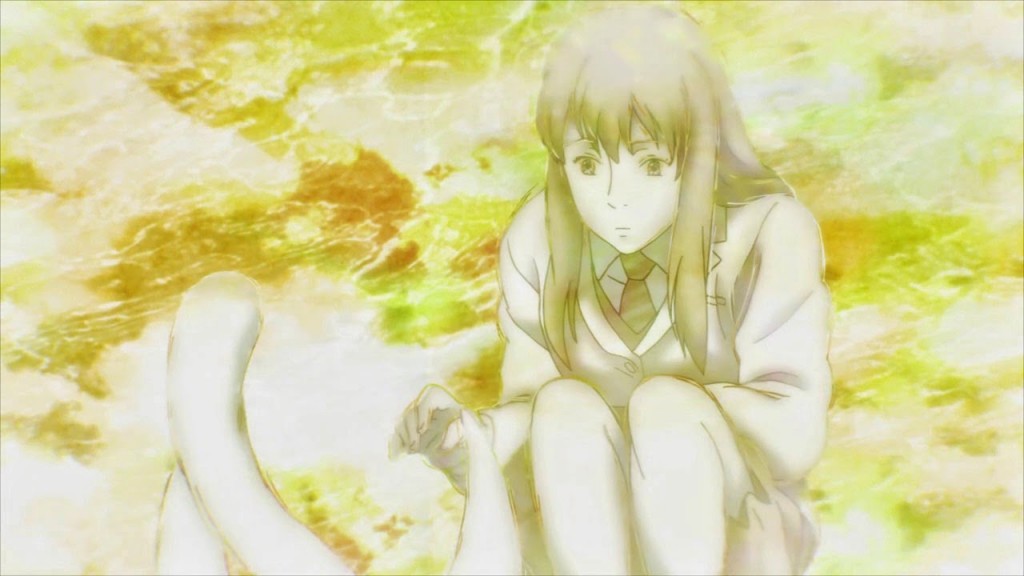
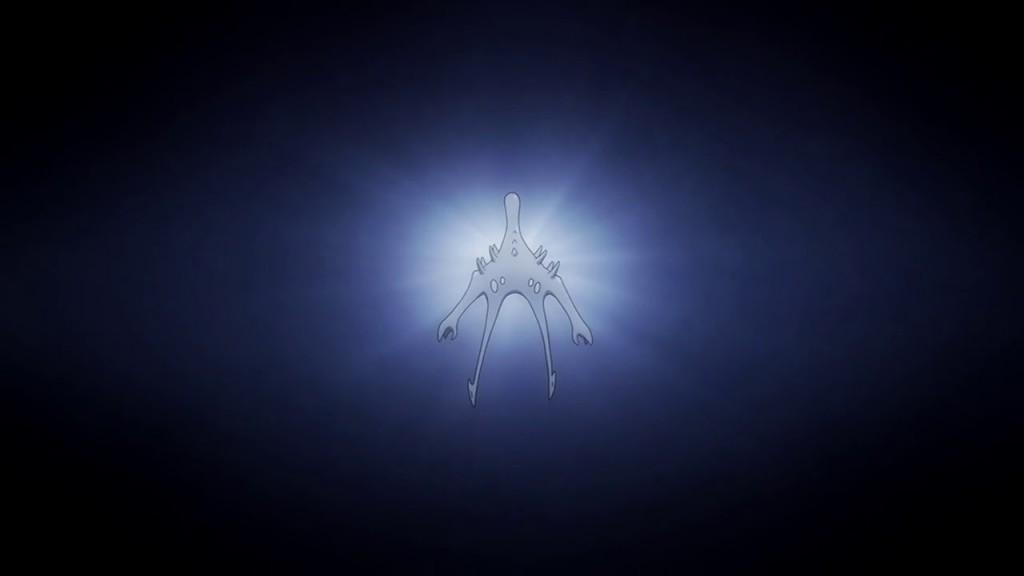
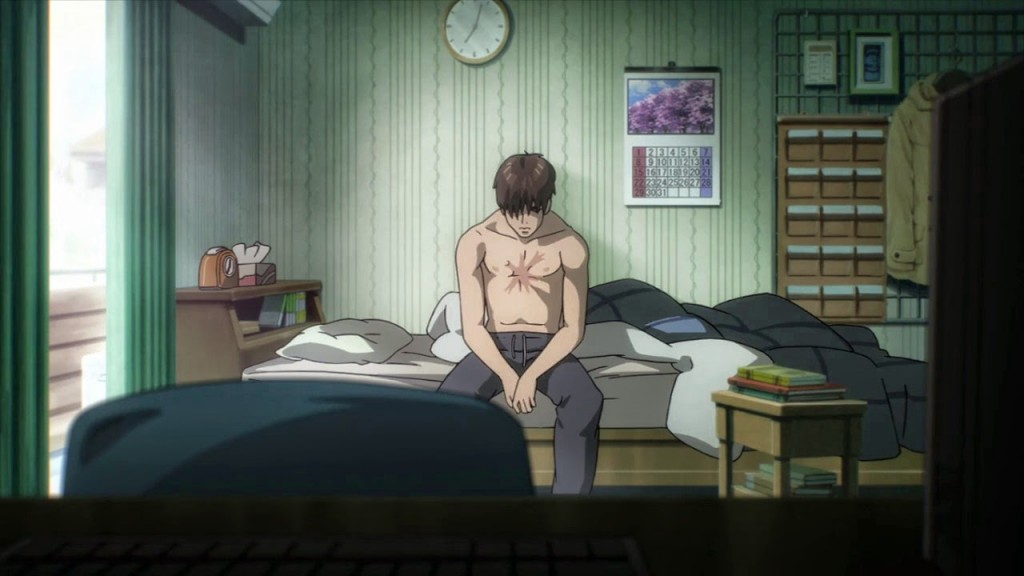
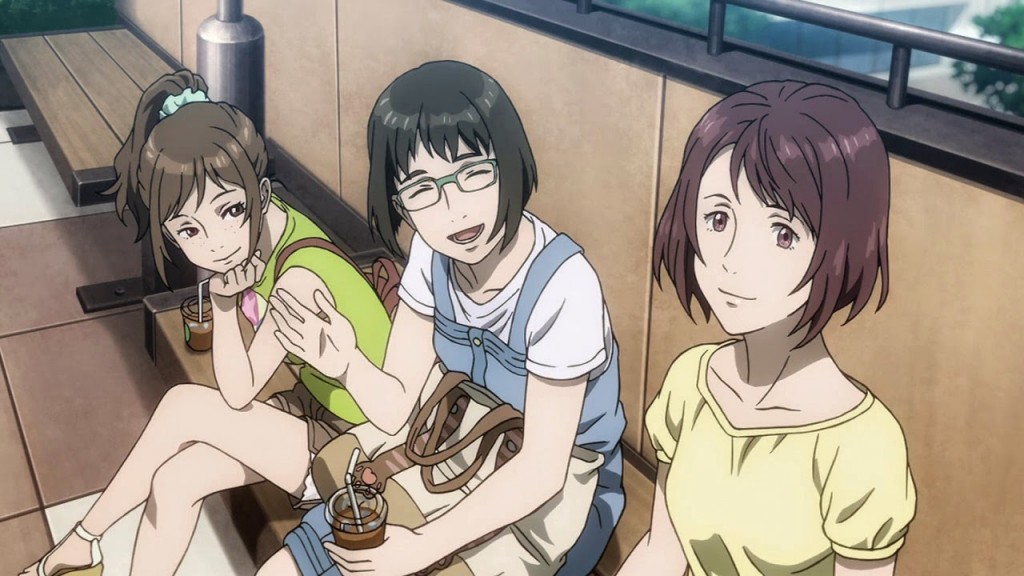
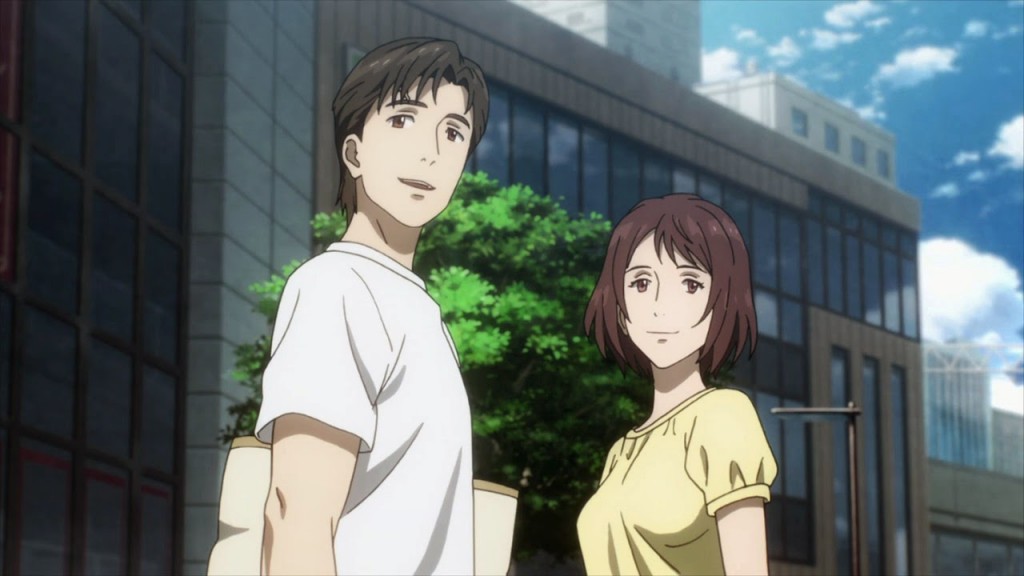
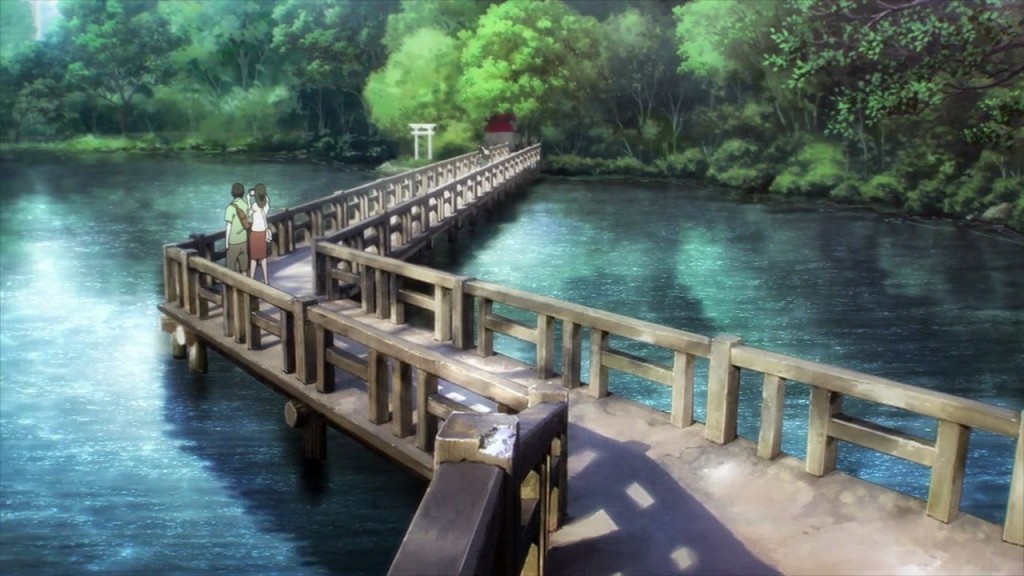


segafreak2000
March 26, 2015 at 9:31 amCouldn't have summed up the finale any better – great final review, and thanks for reviewing this every week in general. Has been some fun reads.
Also, about why the adaption only came now – this is due to licensing issues. Some Hollywood studios held the rights for it from 2005 to 2013 because they wanted to adapt Parasyte as a movie, but that project failed and therefore they had to wait until 2014 until they could actually adapt it as an anime.
admin
March 26, 2015 at 10:44 amThanks for that info – I wasn't aware of that.
Roger
March 26, 2015 at 12:29 pmSo that's what happened. I don't know about the recent movies, a lot of people seem to hate them, have you seen them Enzo? At least the anime was as good as the manga since it stayed truthful to the source material.
There were no big changes, just some trimming here and there and a general update of art and technology. Where the anime truly improves on the manga is where the ideas and themes are fully formed and they are told with eloquence like in this last episode.
Whereas the last chapter of the manga didn't have that much introspective on the whole story due to the limit of pages, here the whole message is delivered in a way everyone can understand. It is a beautiful message of nature and truth about our world and the creatures that live in it and our place in it.
admin
March 26, 2015 at 12:35 pmNope, have not seen them. Live-action adaptations of manga or anime generally leave me cold.
Pavel
March 26, 2015 at 9:45 amWith this and Akatsuki no Yona ending at the same time, I'm at a loss. Two brilliant stories conveyed through near-flawless adaptations. I'm happy Shinichi got the happy ending he deserved, but that came at the price of another highly tense and frightening moment. Parasytes may behvave themselves but the folly of humans will remain a constant danger.
I hope we'll keep getting adaptations of great mangas (where's my Kingdom season 3?).
Gary Cochran
March 26, 2015 at 12:27 pmAnd they do it without resorting to fan service. There are many animes that have great storylines and characters and yet are reduced to jokes because of over saturation of fan service. Cross Ange was a good series but never got taken seriously because of the fan service.
Duke Of Earls
March 26, 2015 at 4:20 pmMan, you've expressed my feelings perfectly. Extremely sad to see Kiseijuu and Yona go. Also anxiously awaiting another season of Kingdom.
sonicsenryaku
March 26, 2015 at 10:44 amAAAaaaaannnnnd this is why i thought the ending to parasyte was an appropriate ending and a very satisfying one (it’s kind of late and im tired so this will sort of just be me rambling a bit). You get to see all the development within shinichi actually make a differenc eand it really illustrates how much growing up he had done throughout his journey. His mindset truly has matured, but not just because he has come to understand the value of living beings, but the value of himself and the connections he has with others. Shinichi has come to value his love for Satomi more than he ever imagined, and we see that all come to a head when the aspect of losing her from a human threat (like most of us fear for when thinking of our loved ones) nearly brings shinichi heartbreak.
Speaking of the human threat, we see Uragami one last time and while his ramblings seem like that of a deranged man, he as well brings everything full circle. Even a murderous man like him questions his own sanity, but he does so, almost in a way as if looking for acceptance, which you would think wouldn’t bother him. His argument against the current, accepted human behavior has some layers to it because to him, he's just being human in murdering and devouring other humans as well, it’s just that he’s a different type of human; a human who has been able to tap into his more primal nature to the point that he can tell his herd apart at just a glance; a human who has freed himself from the shackles of his morality. That’s the reason Uragami could tell who was a parasite and who wasn’t; His ability was less akin to ESP. Through this dialogue, we can then ask: Were the parasites actually human all along? a more evolved human, less evolved? iwaaki brings all his parallels between human existence and parasites in one fell swoop with this piece of dialogue.
sonicsenryaku
March 26, 2015 at 10:46 amRemember how Ryoko mentioned before that parasites dont need to eat human beings and that they do because there is some "command" in their head telling them to do it. Uragami states (and its true) that back in the day of our primal years, we would cannibalize other humans for survival, mostly likely a command that would go off within our psyche in an attempt to survive. It is this same command that exists in parasites, which alludes to them being a primal form of humanity. But it is because of this that their potential to evolve a sense of morality or empathy for other human beings was undeniably possibly, because at their core, they were human beings. Like Ryoko had said, parasites and humans are very similar. Back in our primal days we obviously had yet to evolve a higher system of morality, which begs the question. Does evolution correlate to a higher chance of a species extinction?
When we were in our primal days, our behaviors kept our species controlled and our planet, less damaged. Darwinism says that we evolve to survive but in humanity’s case, is it possible that our evolution will attribute to our extinction. We evolve intellectually and as a result technologically as well, but we put more damage on the planet that could ultimately spell our fate. We now live longer lives but we now risk overpopulation (which arguably brings us to dig into our more primal instincts, like wanting to diminish our numbers in order to survive). Why is it that we seem to evolve and yet there are just as many risks to our extinction? Like the laws of thermodynamics, does everything eventually reach an equilibrium where the possibilities of progression and annihilation become indiscernible? Uragami ultimately states that evolution complicates things (and to a certain extent he's right). he's been following his human extincts all along, instincts similar to parasites, which plays on the fact that the parasite mindset was very human all along. I mean back in the day, humans had a hive-mind mentality as well. Either way, I thought this finale was a good one. It really cemented Satomi and Shinichi's relationship, and Migi's psuedo-sacrifice to give shinichi a normal life was very parental in nature and in line with all the themes of parasite so far. Again, although parasyte has its blemishes, it makes up for it considerably in thematic resonance and it made for a really good series in the end. This was a very emotionally centered finale (those are my kind of finales) and that's all I can ask for
Roger
March 26, 2015 at 12:21 pmYou are right. Like you said about humans, there is also a lot of introspective in the last episode about human nature and parasite nature.
melodic thoughts
March 27, 2015 at 2:28 pmRather than cannibalism, we now have war. It was a very nice commentary you have there.
sonicsenryaku
March 27, 2015 at 3:37 pmthank you :). They were just my initial impression upon seeing the ep. But yes you're right, war has taken over cannabilism. In a symbolic sense, we devour one another through war and destroy ourselves mentally and emotionally through it
ftghb
March 31, 2015 at 8:31 amThere is an ideal that meets its limit when sheer number of resources cannot keep up and thus we have to fight over them. To maintain our standard of living and continued growth, just by our existence, we are impinging on someone/something else's life.
To wrap up my final impressions from marathoning this series, I couldn't care any less about the satomi and shinichi relationship. The more powerful message that stuck with me was left a few episodes ago, when hirokawa was suggesting the idea of "culling" humans because of the harm they were doing to this planet. That despite our evolved intelligence and sense of morality, we still cater to ourselves first and foremost despite the fact that we understand better than how humanity has impacted life on earth. Why this obvious disconnect between our empathy and morals with our actions?
redSchar
March 26, 2015 at 12:11 pmThank you for your coverage. I was persuaded to watch Parasyte after reading your reviews, but I only started after the winter season had already kicked off, so that's kind of my excuse for not commenting. (I always lagged a bit behind and was thus always late to the party.) When I first read the synopsis, I expected something along the lines of Body Snatchers with generous helpings of gore and body horror. That sort of thing is not usually my cup of tea, so I passed. But I'm glad my mind was changed. The intelligence and deep thematic questions of this series are definitely a rarity in anime today.
admin
March 26, 2015 at 12:37 pmAnd with Death Parade ending assate , that's three gems to bid farewell to in four days. Rough sledding.
Roger
March 26, 2015 at 2:30 pmredSchar is right, thanks Enzo, it was a fun ride. I haven't watched Death Parade yet, I was sort of expecting it to end and then marathon it on a day off.
elianthos80
March 26, 2015 at 1:09 pmAnd now that the series is over I feel like I can briefly chime in again. While some aspects of the anime didn't click with me I'm glad they managed to dedicate a whole episode to the manga coda/epilogue. It needed this king of breathing space to bring the point of the series home and the execution was strong – that the ending itselfs is comprehensive and… outspoken thematically even if we get no mention of Reiko's baby also helps -. Plus I liked Shinichi's Philosophia hoodie and this week his Aporia t-shirt… good fit :p.
Murano was even allowed some of her original liveliness at last. Huzzah.
Talking of 'point of understanding' and the meaning of existence, between this finale and Death Parade we should get quite the food for thought this weekend. Regardless of my feelings as a manga fan it's like the anime planets aligned and I'm grateful for that. It's a pretty rare event :,)
melodic thoughts
March 27, 2015 at 2:44 pmand Uragami's maxime cap. Nice finishing touches they have there.
Haris Siddiqui
March 27, 2015 at 6:27 pmHow accurate was this anime in terms of sticking to the source material/manga?
elianthos80
March 27, 2015 at 7:35 pm@melodic thoughts: yes I liked that too XD
@Haris: in term of content check-list there isn't much difference: they cut some scenes here and there and the manga is a bit more direct when it comes to comedy gags – and gore. Iwaaki-sensei loves his gory moments – . Kana and Murano look and give off a different ('softer') vibe in the anime compared to the manga ( personally I prefer the manga. I like my girls a bit spunkier in the Parasyte universe. Murano especially, that girl can laugh and loves her some banter on paper but on-screen not so much :p ).
TL;DR: the anime is not bad. I happen to prefer the original, 'dated' art style and girls' personalities included.
Jay Psi
March 27, 2015 at 7:43 pmThere's no way that the dovetailing of Death Parade and Parasyte wasn't intentional on the part of Madhouse. The first thing I thought of when listening to Migi's monologue on the human condition was that Chiyuki needed to hear this.
It was a bit jarring to see bits of Satomi lifted straight out of the manga when for most of the series her character has been diluted into token girlfriend. But apart from that this episode was a great way to end the series. I would say that part of the muted response would be because it's such an iconic manga that there are elements of seen it all before/"Seinfeld isn't funny" from the general audience. The legacy Parasyte had on the landscape is obvious after having seen and read it.
It's been a great series to follow.
ObahhabO
March 26, 2015 at 10:00 pmI enjoyed this series.
But . . . how can a series like this not once address the origin or back story of the parasites??????? Very frustrating. I thought that would be addressed in the final episode. Guess not.
muchmor1
March 27, 2015 at 1:06 am"What makes us human, if not our preoccupation with matters not directly related to life, procreation and death?"
That's an astute observation, it's part of the way we try to measure intelligence in species other than our own; curiosity, self-awareness, and the desire to explore behaviors that aren't directly related to survival and procreation.
It's an interesting theme and I think you are correct that that is one of the underlying philosophical question behind this anime – what differentiates human beings from other species on the planet.
Nice review, as usual.
melodic thoughts
March 27, 2015 at 2:37 pmIt was a really nice wrap up to the series. Us human beings, at least in the modern world, do have the luxury of a certain degree of safety, hence we are able to divide our concerns to more trivial matters other than survival and evolution. Though it must be said that Migi's viewpoint is still limited within what is observable in city Japan. Life in other parts of the world may be drastically different, and in that sense, Migi is so human because he can only hope to live out a limited lifespan attaining limited knowledge.
While I was expecting something more climatic, this works as well. I love how Satomi shows her real thoughts here, she had never been able to let go of her nigging fears (in the scene where she stared at Shinichi's eyebrow and seemed almost sad) of possibly losing Izumi, as she was never able to understand him, now she finally came full circle to accepting who he is and how he has become (:
This is a beautiful story and I hope to see more series like this. Madhouse u go!
Earthling Zing
March 28, 2015 at 2:08 amWhen Satomi fell down, that felt terrifyingly real thanks to how death-happy the series has been since it started. I don't know if killing side character after side character was the best choice, but I'm glad that they decided to subvert it in the finale.
I read the manga about 3 years ago(because of that cool headsplitting imagery) and I didn't manage to finish it, so I'm glad that anime finally gave me closure to the story. It was an improvement over the manga I think, with a nice art style and direction going into scenes, its just a pity that material had to be cut to fit it into 24 episodes so some things were a little rushed.
All in all, I think the series ended up as quite an interesting scifi by an author with as much curiosity about the world as Togashi. I loved how it addressed certain topics like altruism especially in this episode. Hope that more series like this come along, Ushio to Tora does give me a similar vibe at least?
ftghb
March 31, 2015 at 8:40 amthe scene that resonated the most with me from this series was the one where shinichi was faced with ending gotou once and for all, or to let the forces that be decide his fate. And then he turns around and kills him anyway. At first I was disappointed with the hypocrisy of shinichi's flip flopping decision until i realized that's probably exactly what i would have done; And then I was disappointed in myself, despite knowing and empathizing with everything reiko said about the existence of life, and still having the capacity to kill for my own needs. I don't consider myself extremely religious or anything, but I do have a certain set of standards and morals, it was mind jarring to realize how easily i would able to shatter them to protect my own livelihood.
ftghb
March 31, 2015 at 8:45 amon the whole, wonderful series. The relationship between murano and shinichi didn't interest me that much, as half the time was spent wondering, "are you really shinichi"? (i know there was a theme, but it was still annoying as f***). Migi and Reiko really made this series pop for me, really wonderful portrayal of what another intelligent species would view humanity as. It was as thought provoking as any anime i had watched in recent memory (the last one probably being shinsekai yori). I'm going to have trouble sleeping after this…..
Flo D
June 15, 2015 at 10:14 amCan I have you opinion please ? Are Satomi and Shinichi going to have a 'true' love Relationship after such an ending ? In my opinion yes, they are ready now. What's yours ? 🙂
admin
June 15, 2015 at 4:31 pmI don't know… To be honest, I wonder if Shinichi isn't too damaged to ever be a stable life partner at this stage. You remember the scene in "Return of the King" where the four hobbits are back in the Shire, drinking an ale in the pub. Everything seems fine, but they share a look that says "Nope – after what we've seen, we can't ever take any of this seriously anymore". That might just be Shinichi as far as stuff like romance goes.
Flo D
June 15, 2015 at 6:39 pmYes I agree… But they are in love, that's a fact… And It's the first time that he is not afraid of the fact that Satomi maybe saw migi …so yes, let's debate haha 🙂
Flo D
June 15, 2015 at 7:17 pmAnd if we Watch the last page of the manga, 'I only want to feel some warmth'.. And there is no doubt: He was speaking about Satomi, he held her in his arms at this moment.